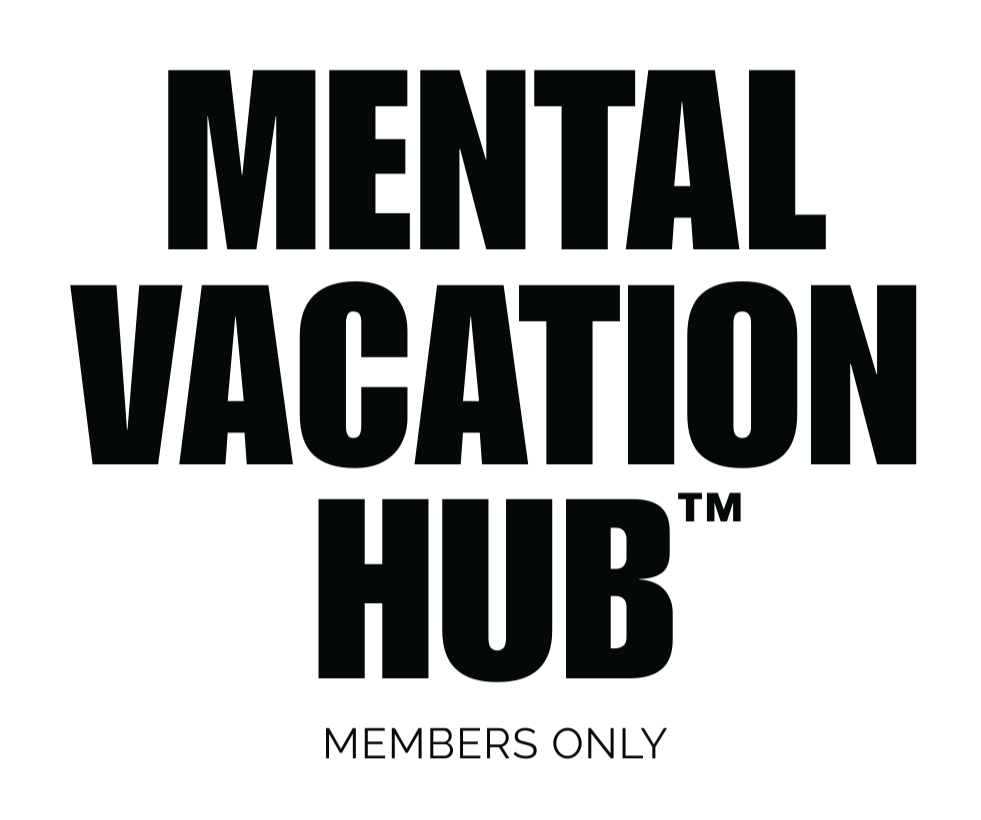My Experience With Burnout
When Everything Stops
For years, I believed that burnout was something that happened to other people.
I thought that because I was ambitious, organized, and determined, I was immune. I had built businesses, raised children, kept up appearances, and kept moving, no matter how heavy life became.
And then one day I stopped.
Not because I chose to, but because my body and mind made the choice for me.
The slow decline
Burnout didn’t crash into me overnight.
It was a slow decline, almost invisible at first. I forgot small things, lost track of tasks, and felt more irritated than usual. I brushed it off as exhaustion, told myself it was a temporary dip. After all, I had always been able to push through before.
But over time, my brain started failing me in ways I couldn’t ignore.
I would sit down to write an email and stare at the screen, unable to form a sentence. I would go out for errands and realize halfway that I had forgotten why I left the house. Sometimes I couldn’t remember words that used to come easily.
Even basic decisions became overwhelming.
The ambitious, sharp woman who used to see opportunities everywhere was gone.
What remained was someone who woke up each day with a heavy fog in her head, someone who wanted to act but simply couldn’t.
The crash
I remember the moment I realized it wasn’t just a phase.
I had agreed to cancel some work assignments to give myself breathing space. It sounded simple enough. But when I tried to write the emails, nothing came out. Draft after draft ended up deleted. What excuse could I possibly give?
Saying the truth - that I was too exhausted - felt like admitting I was weak, unreliable, a failure.
My right mind told me I needed sick leave. She said my life was unsustainable. She used words like “emergency brake” and “collapse.” I nodded, but I resisted. I thought: I’m not that bad. I’m just tired. I’ll get through this.
That denial kept me trapped until my body left me no choice.
My sleep disappeared. Anxiety took over. I couldn’t concentrate, couldn’t remember, couldn’t even feel like myself anymore. At that point, it was no longer about choice.
It was survival.
What burnout took from me
Burnout stripped away almost everything I thought made me who I was.
My ability to think clearly, to work, to earn, to provide for my children. My network, which I had believed was strong, disappeared when I no longer had the energy to give. I found myself broke, homeless, and humiliated, carrying the double weight of exhaustion and shame.
What hurt the most was losing my identity.
I had always been the reliable one, the strong one, the ambitious one who made things happen. Suddenly, I was none of those things.
Waking up each day felt like facing a stranger in the mirror.
Lessons in weakness
One of the hardest lessons was admitting weakness.
For people like me, weakness is not allowed. We are the ones who always show up, who always manage, who never let others down. To say “I can’t” or “I need help” felt unbearable.
But burnout forced me to learn a new language.
Words like “no,” “stop,” and “help” became survival tools. I realized that strength is not endless. Pushing through is not always noble.
Sometimes the bravest thing you can do is to stop, to rest, to let go.
What I know now
Looking back, I see that burnout doesn’t happen to the weak.
It happens to those who have been too strong for too long. It happens to high achievers, perfectionists, people with endless stamina and responsibility, people who others depend on. Burnout is the cost of carrying too much without enough recovery, of tying your worth to constant performance, of refusing to admit limits.
The crash was painful, but it gave me clarity.
I can no longer live the way I once did. I cannot build my life on endless hustle and the approval of others. I need boundaries. I need rest.
I need to design work and life that allows me to be human, not a machine.
Moving forward
I am still recovering.
Some days are better, some are worse. My brain still struggles, my energy is not always reliable, and I sometimes grieve the sharpness I once had. But I also know that the person I am becoming is wiser, calmer, and more compassionate than the one I used to be.
I no longer measure myself only by achievement.
I am learning to measure myself by presence, peace, and the ability to build a life that feels sustainable. I am creating a different kind of future, one where wealth is built without burnout, one where success includes rest, and one where ambition and health can coexist.
Burnout took me apart. But it also gave me a chance to rebuild.
And this time, I intend to build differently.
Need more burnout guidance?
If you’re looking for practical steps beyond books, explore my Burnout SOS Handbook.
It’s a clear, supportive guide with strategies to understand what’s happening, survive the hardest days, and take steady steps toward recovery.
